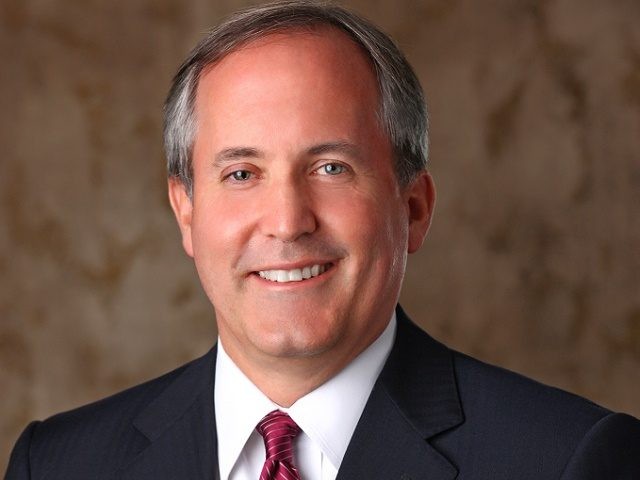A federal judge hearing the case from the Securities and Exchange Commission (SEC) against Texas Attorney General Ken Paxton said he wonders if the prosecution is trying to fit a “square peg in a round hole.”
“Are we stretching the securities law to cover something it wasn’t meant to?” Federal District Judge Amos L. Mazzant asked prosecutors after hearing their arguments against the defense’s motion to dismiss the charges against Paxton.
Judge Mazzant told the SEC attorneys “You’re basically asking me to create a new general rule” requiring disclosure of compensation, Watchdog reported. While the lawsuit claims such a requirement is already in existing law, the lawyers for the commission could not seem to identify where that rule is.
Houston lawyer Philip Hilder, one of the attorneys for AG Paxton told Breitbart Texas, “The SEC sued Mr. Paxton for securities fraud in a complaint that fails to allege that he made a single false statement. The court was skeptical of the Government’s theory by stating that the allegations where akin to attempting to ‘fit a square peg into a round hole’.”
Paxton’s lawyers filed a 29-page motion to have the SEC’s civil lawsuit dropped, arguing the SEC’s claims were “a dramatic overreach and lack any basis in law,” Breitbart Texas reported in June. The brief filed by lead counsel Martens, Dallas lawyer William B. Mateja, and Frisco lawyer J. Mitchell Little, notes that the federal complaint for securities fraud “does not allege that [Paxton] made a single false or misleading statement.”
Paxton’s lawyers urged that because the SEC “appears to be taking the position that when Mr. Paxton introduced several acquaintances to an investment opportunity in a technology company known as Servergy, Inc., he had two duties.” Specifically, that he had the duty “to disclose that he had not performed some sort of an investigation of the company’s operations before talking to his personal acquaintances about the company; and second, to disclose that the company’s founder had offered to compensate him for introductions that resulted in investments.” These “novel” “obligations” do not even apply to registered securities professionals, “much less to individual investors like him,” they argue.
The SEC’s attorney, Matt Gulde, attempted to argue that Paxton’s failure to disclose a compensation agreement made everything else he said half-true – that when he said Servergy was “a great company” that statement was rendered half-true, Cassidy wrote in his article.
Judge Mazzant responded that such an interpretation would create a new rule that would have vast reach. “That would apply to anybody who receives compensation,” the judge stated.
Gulde countered that Paxton’s case was somehow unique because he knew the potential investors personally. The judge responded, “I can’t conceive of where there’d be an exception to that, because everyone you’d go to is somebody you know,”
Paxton attorney Matt Martens cited a long list of cases from the Supreme Court and lower courts that held there is no positive duty to disclose one’s compensation.
Martens previously managed the SEC’s enforcement litigation unit, Breitbart Texas reported earlier. The unit included 40 lawyers in the SEC’s headquarters in Washington, and lawyers in all of its eleven regional offices. He supervised the only three litigated Foreign Corrupt Practices Act (FCPA) cases ever tried to date. He counseled commissioners in complex SEC enforcement matters and former SEC Chairman Mary Schapiro told Reuters, Martens has “this extraordinary ability to, in a very cogent, concise, logical way, pull all the information together that was necessary for us to make a decision.”
Martens told Watchdog.org that while judges rarely rule positively on motions to dismiss, he was “pleased the judge asked all the right questions.”
The timing of the lawsuit filed by the SEC also raised questions, Breitbart Texas reported in April. The lawsuit was filed by the agency of the federal government just one week before the Texas Attorney General would be appearing before the United States Supreme Court in a case filed by the State of Texas and 25 others against President Obama’s now-enjoined executive amnesty order.
“That’s just creative timing by the Obama administration to file a lawsuit one week before I lead a twenty-six state coalition against his illegal immigration order,” AG Paxton told Breitbart Texas following the filing.
The Lone Star State took the lead in filing the federal lawsuit in the U.S. District Court for the Southern District of Texas. Twenty-six states joined the fight. Federal district court Judge Andrew Hanen in Brownsville, Texas, issued an order preventing the DAPA (Deferred Action for Parental Accountability) from taking effect and the U.S. Court of Appeals for the Fifth Circuit affirmed Hanen’s decision. As reported by Breitbart Texas, the United States Supreme Court left in place a block of the unlawful executive amnesty order.
Judge Mazzant said he would issue a ruling on the motion to dismiss the suit against Paxton within 30 days.
Lana Shadwick is a contributing writer and legal analyst for Breitbart Texas. She has served as a prosecutor and associate judge in Texas. Follow her on Twitter @LanaShadwick2.

COMMENTS
Please let us know if you're having issues with commenting.